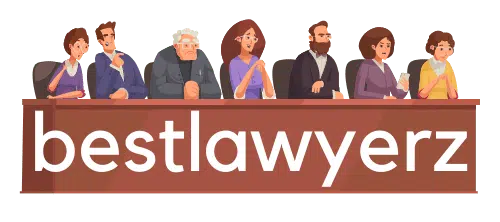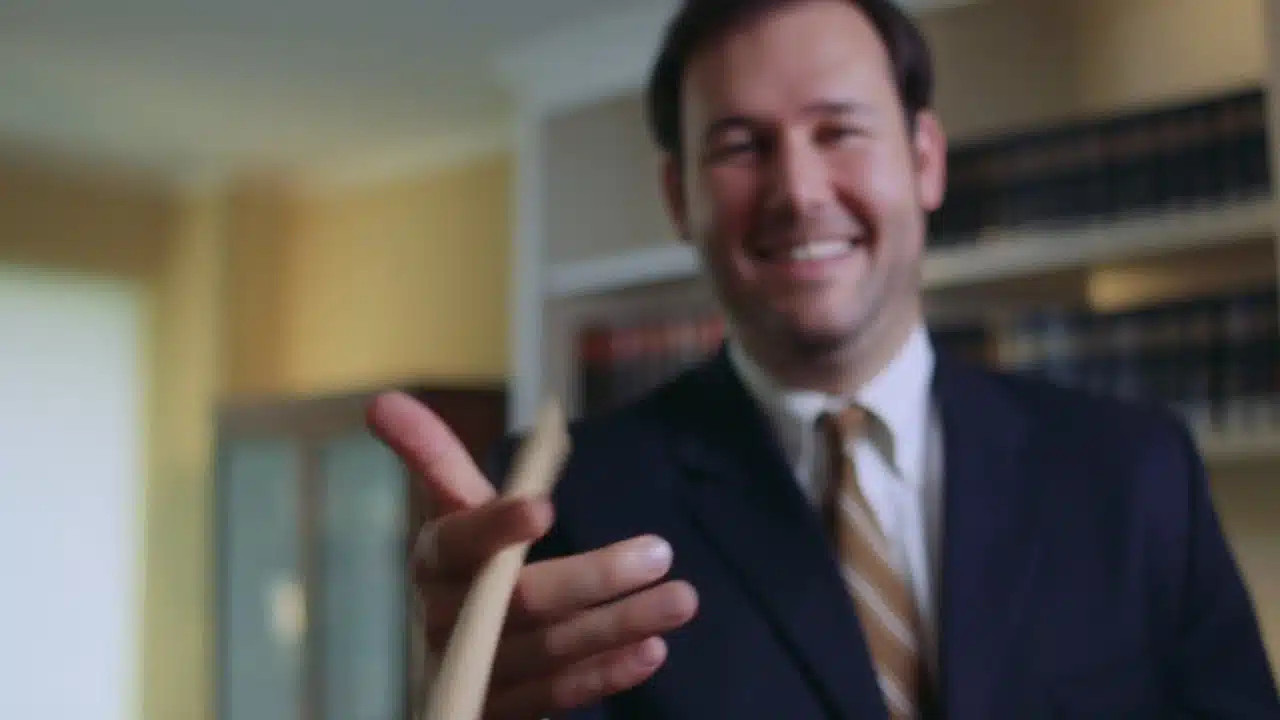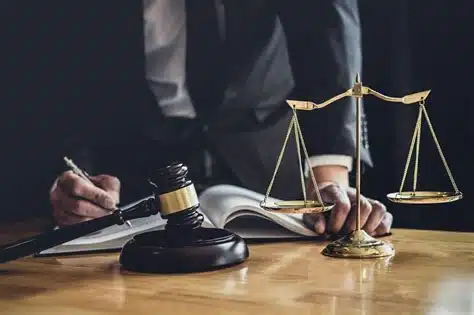Roles and Responsibilities of an Entertainment Lawyer
An entertainment lawyer plays a crucial role in the entertainment industry. They are legal professionals who specialize in providing legal advice and representation to artists, entertainers, and other individuals involved in the entertainment field. Their roles and responsibilities encompass a wide range of legal matters, including contract negotiation, intellectual property protection, and navigating legal challenges specific to the industry.
One of the main responsibilities of an entertainment lawyer is to assist artists and entertainers in negotiating contracts. This involves reviewing and interpreting contracts, identifying any potential issues or loopholes, and ensuring that their clients’ best interests are protected. Whether it’s a record deal, film contract, or endorsement agreement, the lawyer’s expertise and attention to detail are crucial in ensuring that their clients enter into fair and favorable contracts.
Another important aspect of an entertainment lawyer’s role is protecting their clients’ intellectual property rights. This includes trademark registration, copyright protection, and licensing agreements. By actively monitoring and enforcing their clients’ intellectual property rights, these lawyers help prevent unauthorized use and infringement, thus preserving their clients’ creative works and earning potential.
Legal challenges are prevalent in the entertainment industry, and an entertainment lawyer is there to guide their clients through them. From disputes over royalty payments to copyright infringement lawsuits, these lawyers provide strategic counsel and representation to resolve such issues. They have a deep understanding of the complex legal landscape in the entertainment industry, allowing them to navigate these challenges effectively.
In addition to contract negotiation, intellectual property protection, and legal challenges, entertainment lawyers also play a crucial role in negotiating deals and agreements for their clients. This can involve various aspects, such as sponsorship and endorsement deals, licensing agreements, and distribution contracts. Their negotiation skills and legal knowledge are instrumental in securing favorable terms and ensuring that their clients’ best interests are represented.
In conclusion, the roles and responsibilities of an entertainment lawyer are far-reaching and essential in safeguarding the rights and interests of artists and entertainers. From contract negotiation to intellectual property protection, these legal professionals provide expert guidance and representation in navigating the complex legal landscape of the entertainment industry.
Navigating Contracts in the Entertainment Industry
Contracts play a crucial role in the entertainment industry, providing a legal framework for various agreements and ensuring that all parties involved are protected. However, navigating these contracts can be a complex and daunting task. In this blog post, we will explore the key aspects of navigating contracts in the entertainment industry and discuss the important factors to consider in order to ensure a successful and mutually beneficial agreement.
1. Understand the Terms and Conditions
Before signing any contract, it is essential to thoroughly understand and analyze the terms and conditions stated within. Take the time to carefully read through the document, paying attention to clauses related to compensation, rights, obligations, and any additional provisions. If there are any sections that are unclear or require further explanation, do not hesitate to seek legal advice. It is crucial to enter into a contract with a clear understanding of all obligations and expectations.
2. Seek Legal Counsel
When dealing with complex contracts in the entertainment industry, it is highly recommended to seek the guidance of an experienced entertainment lawyer. These professionals specialize in the legalities and nuances specific to the industry, ensuring that your interests are protected and that the contract is fair and equitable. An entertainment lawyer can help negotiate terms, identify potential risks, and provide valuable insights based on their expertise. Their involvement can significantly minimize the chances of encountering legal issues in the future.
3. Negotiate Fair and Favorable Terms
Negotiation is a crucial aspect of contract navigation in the entertainment industry. It is important to advocate for your best interests and negotiate fair and favorable terms. This may include discussing compensation, exclusivity rights, termination clauses, and any other specific requirements or protections. Be prepared to discuss and counteroffer, but also be willing to compromise where necessary. By negotiating effectively, you can ensure that the final contract aligns with your goals and provides a solid foundation for a successful professional relationship.
4. Document Changes and Amendments
Throughout the negotiation process, it is common for changes and amendments to be made to the initial contract. It is crucial to document all agreed-upon changes in writing to avoid any misunderstandings or disputes in the future. These changes should be properly communicated to all parties involved and incorporated into the final contract. By documenting amendments clearly, you can ensure that the contract accurately reflects the negotiated terms and conditions.
Navigating contracts in the entertainment industry can be intricate, but with proper understanding, legal guidance, and effective negotiation, you can navigate the process smoothly and with confidence. Remember, contracts are designed to protect all parties involved and provide a solid foundation for successful collaborations and relationships within the entertainment industry.
Protecting Intellectual Property Rights in Entertainment
In the fast-paced world of the entertainment industry, intellectual property rights play a crucial role in safeguarding the creative works of artists, musicians, filmmakers, and other individuals involved in the field. Intellectual property refers to unique creations of the human mind, such as inventions, literary and artistic works, designs, symbols, and names used in commerce. With the advent of digital technology and the easy accessibility of content online, protecting these rights has become increasingly challenging. In this blog post, we will explore the importance of protecting intellectual property rights in the entertainment industry and discuss some strategies to tackle the ever-evolving landscape.
Why is Intellectual Property Protection Vital in Entertainment?
Intellectual property protection is vital in the entertainment industry for several reasons. Firstly, it provides legal recognition and ownership of creative works, which encourages artists to invest their time, effort, and resources into producing innovative content. Without adequate protection, there would be little incentive for artists to create new and original works, leading to a loss of artistic diversity and cultural development.
Secondly, protecting intellectual property rights helps to foster economic growth and job creation. By granting exclusive rights to creators, they can profit from their creations and contribute to the economy. Infringement or unauthorized use of intellectual property can result in financial losses for artists and the industry as a whole.
Strategies for Protecting Intellectual Property in Entertainment
| Strategy | Description |
|---|---|
| Registering Copyrights and Trademarks | Artists and entertainment companies should consider registering their copyrights and trademarks to establish legal ownership and prevent others from using their works without permission. |
| Using Watermarks and Digital Rights Management | In the digital age, employing watermarks and digital rights management techniques can deter unauthorized use of creative content and help trace any infringement. |
| Entering into Licensing Agreements | Licensing agreements allow artists to give permission to others to use their intellectual property in exchange for royalties or other forms of compensation. These agreements ensure that the creators maintain control over the use of their works. |
| Monitoring and Enforcing Rights | Regularly monitoring the usage of intellectual property and taking appropriate legal actions against infringement is crucial. This can involve sending cease and desist letters, obtaining court injunctions, or pursuing litigation if necessary. |
The Future of Intellectual Property Protection in Entertainment
As the digital landscape continues to evolve, the protection of intellectual property rights in the entertainment industry will face new challenges and opportunities. Technology advancements, such as blockchain and artificial intelligence, have the potential to revolutionize the way intellectual property is protected. These technologies can enable secure tracking, licensing, and distribution of creative works, offering stronger protection against infringement.
In conclusion, safeguarding intellectual property rights in the entertainment industry is essential for promoting creativity, economic growth, and maintaining a fair and sustainable industry. By implementing effective strategies and staying informed about the latest developments, artists and entertainers can protect their creations and ensure that their artistic endeavors are valued and respected.
Legal Challenges in the Entertainment Industry
The entertainment industry is a complex and highly competitive field filled with various legal challenges. These challenges often arise due to the unique nature of the industry, where creativity and intellectual property rights play a significant role. In this blog post, we will explore some of the common legal challenges faced by professionals in the entertainment industry and how they navigate through these obstacles.
One of the primary legal challenges in the entertainment industry is protecting intellectual property rights. Intellectual property, such as music, films, and artworks, are valuable assets that need robust legal protection. Artists and entertainers often face issues related to copyright infringement, plagiarism, and unauthorized use of their creations. To safeguard their intellectual property, they rely on entertainment lawyers who specialize in intellectual property law.
In addition to protecting intellectual property, another significant legal challenge in the entertainment industry is navigating contracts. Contracts play a crucial role in defining the rights, obligations, and responsibilities of the parties involved. Entertainment lawyers assist artists, entertainers, and industry professionals in negotiating and reviewing contracts to ensure that their clients’ interests are protected. From record deals to licensing agreements, navigating these contracts requires a deep understanding of the industry and its legal intricacies.
Furthermore, negotiating deals and agreements is an essential aspect of the entertainment industry. The high-stakes nature of negotiations in this industry often leads to complex disputes and conflicts. Entertainment lawyers play a pivotal role in representing their clients’ interests while finding mutually beneficial solutions. They negotiate contracts, resolve conflicts, and protect their clients’ rights, ensuring that the deals and agreements are fair and favorable.
- Intellectual property rights
- Negotiating contracts
- Protecting artists’ rights
- Resolving disputes
- Licensing and distribution issues
| Legal Challenges | Solutions |
|---|---|
| Intellectual property rights | Engaging entertainment lawyers specializing in intellectual property law. |
| Negotiating contracts | Seeking assistance from experienced entertainment lawyers to navigate contract terms. |
| Protecting artists’ rights | Enforcing copyright laws and taking legal actions against infringements. |
| Resolving disputes | Mediation, arbitration, or litigation to settle conflicts in a fair and legally binding manner. |
| Licensing and distribution issues | Consulting entertainment lawyers who specialize in licensing and distribution matters. |
In conclusion, the entertainment industry is not without its legal challenges. However, by recognizing and understanding these challenges, professionals can seek expert legal guidance to overcome them. Intellectual property protection, contract negotiations, and dispute resolution play vital roles in ensuring the success and sustainability of the entertainment industry.
Negotiating Deals and Agreements for Artists and Entertainers
When it comes to the entertainment industry, negotiating deals and agreements is a crucial aspect for artists and entertainers. It involves the process of reaching mutual agreements and terms with various stakeholders, such as record labels, managers, agents, and production companies. Negotiations play a vital role in ensuring that artists and entertainers receive fair compensation for their talents and creative work. In this blog post, we will explore the important roles and responsibilities of negotiating deals and agreements in the entertainment industry.
One of the key responsibilities in negotiating deals and agreements for artists and entertainers is to protect their best interests. Entertainment lawyers play a significant role in ensuring that the terms and conditions of the contracts are favorable and fair. They carefully analyze the agreements, identifying any potential risks or legal issues that may arise. Their expertise allows them to negotiate better terms on behalf of their clients, including financial compensation, rights and ownership, and contractual obligations.
Another crucial aspect of negotiating deals and agreements is understanding the specific needs and goals of the artists and entertainers. Each negotiation is unique, and it is essential to tailor the agreements to suit the individual needs of the client. This may involve negotiating royalties, advance payments, tour and performance schedules, merchandising rights, and other contractual terms that are specific to the artist or entertainer.
- Financial compensation and royalty rates
- Ownership and rights
- Duration and termination clauses
- Non-disclosure agreements
- Performance and tour schedules
- Merchandising and branding rights
Furthermore, negotiating deals and agreements also requires a deep understanding of the current market trends and industry standards. Entertainment lawyers and agents keep up to date with the latest developments in the entertainment industry to ensure that their clients are receiving competitive deals. They negotiate with production companies, record labels, and other stakeholders to secure the best opportunities, whether it is for recording contracts, film or television appearances, or live performances.
| Key Points to Consider in Negotiating Deals and Agreements: |
|---|
| 1. Understand the specific needs and goals of the artist or entertainer. |
| 2. Protect the best interests of the clients by analyzing and negotiating favorable terms in the contracts. |
| 3. Keep up to date with industry trends and standards to secure competitive deals. |
| 4. Negotiate financial compensation, royalties, ownership, and other contractual terms. |
In conclusion, negotiating deals and agreements for artists and entertainers is a complex and vital process in the entertainment industry. It requires the expertise of entertainment lawyers and agents to protect the interests of their clients and secure favorable terms. By understanding the needs and goals of the artists and staying informed about industry trends, negotiations can lead to successful and mutually beneficial agreements. Ultimately, these agreements allow artists and entertainers to focus on their creative work and achieve professional success.
Frequently Asked Questions
What are the roles and responsibilities of an entertainment lawyer?
An entertainment lawyer has several roles and responsibilities, including representing clients in contract negotiations, advising on intellectual property rights, resolving legal disputes, and ensuring compliance with entertainment industry regulations.
How does an entertainment lawyer navigate contracts in the entertainment industry?
An entertainment lawyer helps clients understand and negotiate contracts, ensuring that their interests are protected. They review and draft contracts, negotiate terms, advise on contract breaches, and help resolve disputes that may arise during the contract period.
Why is it important for an entertainment lawyer to protect intellectual property rights in entertainment?
Intellectual property rights are crucial in the entertainment industry as they protect the creative works of individuals and prevent unauthorized use or infringement. An entertainment lawyer helps artists and entertainers secure and enforce these rights, ensuring that they are properly compensated for their work.
What are some legal challenges in the entertainment industry?
The entertainment industry faces various legal challenges, such as copyright infringement, contract disputes, defamation claims, right of publicity issues, and distribution and licensing issues. An entertainment lawyer helps navigate these challenges and represents clients in court if necessary.
How does an entertainment lawyer negotiate deals and agreements for artists and entertainers?
An entertainment lawyer acts as a representative for artists and entertainers during deal negotiations. They work to negotiate favorable terms and conditions, including compensation, rights ownership, royalties, and creative control. Their goal is to protect their clients’ interests and ensure they receive fair and advantageous agreements.
What is the importance of an entertainment lawyer in protecting artists and entertainers?
An entertainment lawyer plays a crucial role in protecting artists and entertainers. They provide legal advice, ensure contracts are fair and accurate, protect intellectual property rights, and represent clients in legal disputes. By having an entertainment lawyer, artists and entertainers can focus on their craft while having the peace of mind that their legal interests are being properly protected.
How can an entertainment lawyer help in the preparation of deals and agreements?
An entertainment lawyer assists in the preparation of deals and agreements by carefully reviewing and drafting contracts to ensure that all necessary provisions and protections are included. They also provide guidance on industry practices and standards, negotiate on behalf of their clients, and ensure that the legal aspects of the deal are properly executed.






